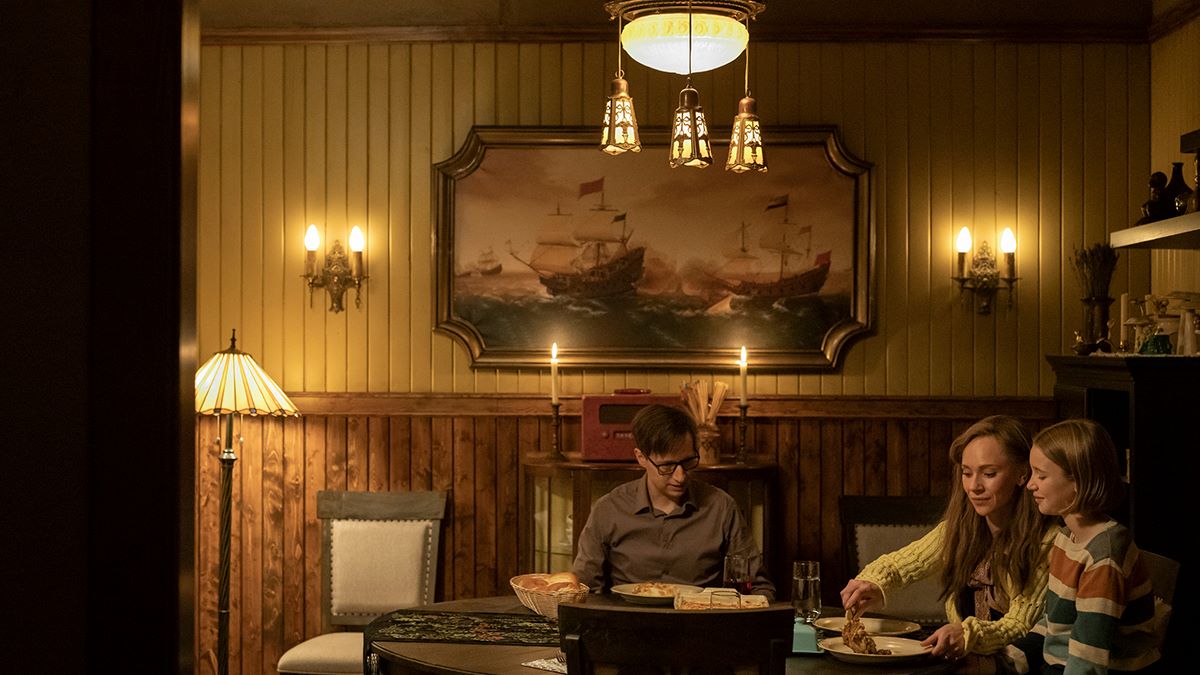If the fifth season of FX’s “Fargo” looks a little familiar to you, all the creators can say to that is…you betcha. Noah Hawley’s Coen-verse thriller series spinoff has sprouted numerous timelines and tangents (the current season even goes back 500 years at one point), but this year’s tense, fiercely comic installment is not at all coy about wanting to put you right back in the universe of the Oscar-winning 1996 classic, even though this incarnation takes place in 2019, only four years ago.
“Frankly, part of the pitch that I made about myself is that it was really a coming of a full circle,” said production designer Trevor Smith, who is returning to “Fargo” after working as an art director on the first season starring Billy Bob Thornton and Martin Freeman, which is the closest to the vibe of the current season. “This fifth installment, I would argue, is an investigation of that original film more than ever and using its structure and muscularity as a leaping-off point.”
Lovers of the original film will get a feeling of déjà vu from some scenes and locations, including the recreation of a masked kidnapper entering through a glass patio door, and even the car dealership in which William H. Macy’s Jerry Lundegaard worked in the 1996 film, right down to the placement of his desk. (Also, listen close for a mention of the TruCoat treatment his character brags about in the film.)




The chief difference this time is the focus on the wife—played by a daffy, deliriously funny Juno Temple as Dorothy “Dot” Lyon—rather than the crummy husband. Dot is a force to be reckoned with even before a botched kidnapping attempt. (In the film, the Lundegaard wife is successfully kidnapped and has far less agency.) The moneyed, no-nonsense Harve Presnell character is now the wife’s lacerating mother-in-law, Lorraine (Jennifer Jason Leigh, with a “Hudsucker Proxy”-like Mid-Atlantic drawl). Lorraine keenly draws the conclusion that there is more to her daughter-in-law than meets the eye.
“It was a really enjoyable fusion and loving homage to the original film,” Smith said. “It was a real challenge for my assistant art director Amanda Nicholson and I to go shot by shot through the original film, find the pieces in the home that we could replicate, including the front door and its openness to the kitchen, and yet still make it do all the other 30 or 40 things that it physically needed for Noah’s scripts. It was no small feat.”

The show famously plays with reality, even keeping the cheeky “based on real events” title card. However, one of the main locations this season is an actual real place, Scandia, Minnesota, though Smith and his crew used Calgary as a stand-in for Minnesota and neighboring state North Dakota, also an important locale for Season 5. Smith’s background in designing Westerns, not to mention being an acclaimed Canadian artist himself, was kismet for the storylines, especially one involving shady, self-governing sheriff Roy Tillman (Jon Hamm), who gives off echoes of the Coens’ “True Grit” and, especially, “No Country for Old Men.” “We looked a lot at the paintings of Andrew Wyeth and were trying to get a vibe of this desolate, barren Western side of North Dakota,” Smith said. “As we worked through it, we wanted to topographically make sure that the viewer always knew if they were in North Dakota or Minnesota, and it just so happened that the villain was to the West in a more desolate, barren place.”
Smith even pointed out a horror vibe to this season, shades of “No Country” baddie Anton Chigurh. Halloween is a major theme, with allusions to the POV of Michael Myers in suburbia, à la John Carpenter’s 1978 “Halloween.” In addition, a Gothic holiday classic celebrating its 30-year anniversary logs in some serious screen time. “In the opening scene of the season, the school brawl, there is actually a setup of “The Nightmare Before Christmas“ as a student production,” Smith said. “If you look carefully, you can see miniature sets of that and the front doors of the school has some posters referencing it.”

In addition, a Jack Skellington mask can be spotted in the Halloween-night sequence and one scene is scored to “This is Halloween,” a song from the Henry Selick-Tim Burton film. Even in a show set a mere four years ago, the team still had to be laser-focused on detail: For instance, Kias are part of the narrative but had a major brand overhaul in 2020, so Smith and co. had to vet their accuracy. But given the “Fargo” milieu, Smith insisted it doesn’t always have to be exact. “There’s nothing worse than a period film where all of the cars are from 1945,” he said with a laugh. “That’s never been the case, and it’s no different with contemporary pictures. Deep at its core, we’re still trying to allude to the “Fargo” we know in our genetic viewing code, which is the 1996 picture. So it didn’t bother me to have anachronistic things that were further back in time, because I think it’s this strange reach back into the entire movie.”
This story first appeared in the Below-the-Line issue of TheWrap’s awards magazine. Read more from the issue here.




